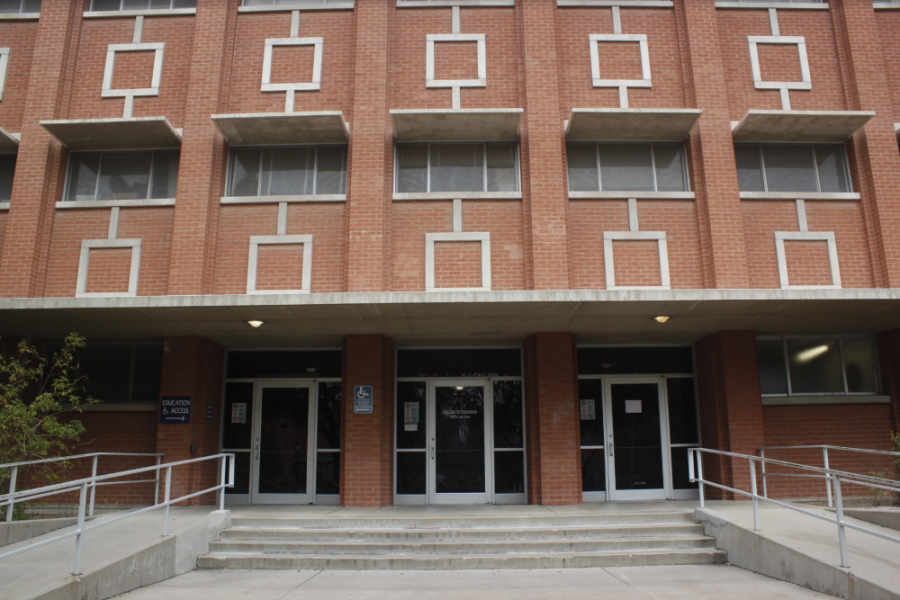Editor’s Note: This article was corrected to reflect that although the new programs hope to enroll students for the Fall 2019 academic semester, many are still undergoing internal review and may be delayed or never offered at all.
The University of Arizona received approval to develop three new undergraduate majors and two additional master’s programs from the Arizona Board of Regents, which governs Arizona’s public universities, during their Feb. 8 meeting in Tempe.
In the future, Tucson undergraduates may be able to obtain a Bachelor of Science in applied physics or in emergency medical services. UA Online and UA South students may be able to earn a Bachelor of Applied Science in cyber operations.
Two potential new master’s degrees, one a Master of Science in entrepreneurship offered through UA Online and another a Master of Arts in education policy, are planning to attract new students to the university.
RELATED: Construction on campus will continue with ABOR approval of six new projects
Before being fully implemented, these programs must undergo a thorough review process involving the UA Office of the Provost and a number of university curriculum committees to ensure all new majors will be relevant, modern and provide students a quality degree.
While all of these majors received a tacit go ahead by the regents, many are still undergoing this internal review. While all the new majors hope to be open to students by Fall 2019, the Masters of Arts in education policy is the only confirmed program for students during the next academic year.
Learn more about what each program hopes to offer to students in the future below:
Bachelor of Science in Applied Physics
This major in-development is targeted to physics students looking to gain the technical and collaborative skills necessary to pursue a career in the private sector.
The major, which will most likely replace the current Bachelor of Arts in physics, plans to focus on teaching students core physics theories, experimental design, problem solving, programming and science communication.
The College of Science expects this major to attract students from underrepresented minorities in physics if implemented and wants to grow the program to more than 60 students by its third year.
Bachelor of Science in Emergency Medical Services
With a plan to target paramedics, this new potential major is designed to provide scientific background, leadership skills and clinical knowledge to help paramedics advance in the medical industry.
The major, as planned so far, will focus on teaching students how to apply new scientific knowledge to pre-hospital care and the skills to provide effective pre-hospital clinical care in a team setting.
The College of Medicine hopes to have 30 students in the program after three years of its first offering.
Bachelor of Applied Science in Cyber Operations
Due to the success of UA South’s specialization in cyber operations, the campus, along with UA Online, has asked to launch a full major focused on preparing students for cyber careers in law enforcement, government and industry.
After completing the major, students will be able to access the risk of and respond to cyber-related crimes using their knowledge of programming, psychology and forensics according to the major’s proposal.
The program hopes to enroll 600 students in its first three years.
Master’s of Science in Entrepreneurship
The potential future program plans to teach students the fundamental principles of entrepreneurship: how to recognize opportunities, solve problems and manage risk and uncertainty.
With startups creating more jobs every year, the program hopes to produce graduates in the future that can learn by doing, think critically and jumpstart innovation in these marketplaces.
The Eller College of Management hopes to enroll 32 students in the program through UA Online in its first three years.
RELATED: Regents vote to change the tuition-and-fee setting process
Master’s of Arts in Education Policy
The new program aims to train the next generation of education policymakers by providing them historical and legal knowledge as well as the skills to analyze the development, impact and implementation of education policies.
Students will have the opportunity to pursue elective courses focusing on language policy, market-based education reforms, law and public policies and other topics related to current scholarship and debates.
The College of Education’s goal is to attract 20 students to the program in the next three years.
Follow Randall Eck on Twitter








